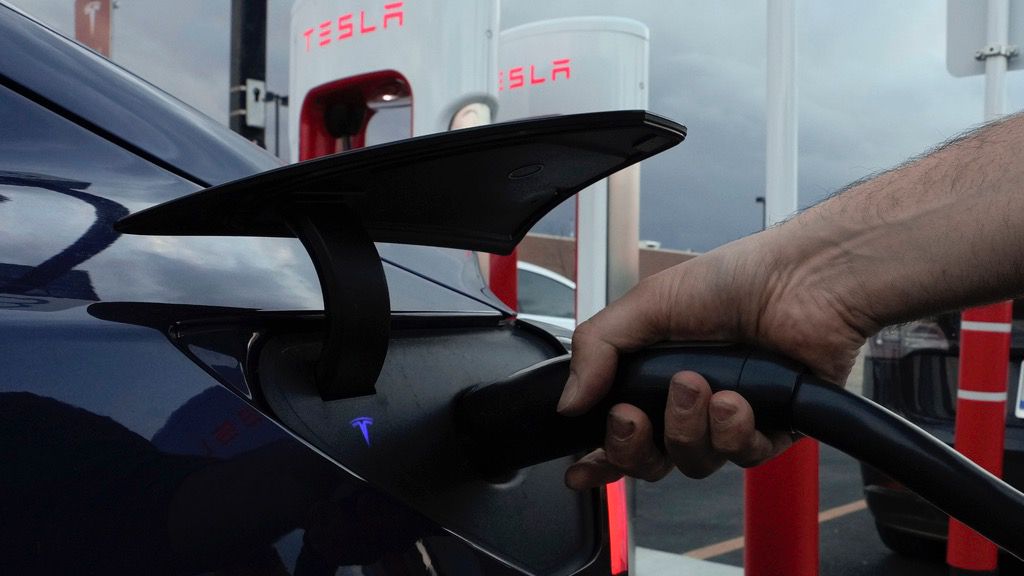As part of the state’s goal of transitioning to zero-emission vehicles, Gov. Kathy Hochul announced Monday the Federal Highway Administration has approved New York state’s plan to utilize National Electric Vehicle Infrastructure Program Funds to install and operate additional fast-charging stations.
Officials say this clears the way for the state to receive its next apportionment of $37.4 million to continue the buildout.
“In order to achieve our ambitious goals to reduce greenhouse gas emissions by transitioning to all-electric vehicles, New York State must have a vast network of charging stations that are easy to use and convenient to reach,” Hochul said in a statement. “By utilizing these critically important federal funds and by working together and combining their great skills and resources, our state Department of Transportation and Power Authority will create a state-of-the art charging network that will encourage more people to own EVs and help make a stop at the gas station a thing of the past.”
The New York State Department of Transportation is working with State Power Authority to expedite the installation of about 20 new fast-charging locations by end of 2024.
“Creating a climate friendly transportation system demands that we do all we can to encourage the use of electric vehicles,” state Department of Transportation Commissioner Marie Therese Dominguez said in a statement. “The Department of Transportation is proud to be a part of this new initiative, which will literally put a charge into New York’s nation-leading efforts to combat global warming and help make EV’s a more attractive and convenient option for motorists.”
Under New York's Climate Leadership and Community Protection Act, the state’s goal is to reduce greenhouse gas emissions by 85% by 2050 and fulfill the state's requirement for all new passenger vehicles sold in the state to be zero emission by 2035.
State officials say New York is on a path to achieving a zero-emission electricity sector by 2040, including 70% renewable energy generation by 2030, and economywide carbon neutrality by mid-century.



